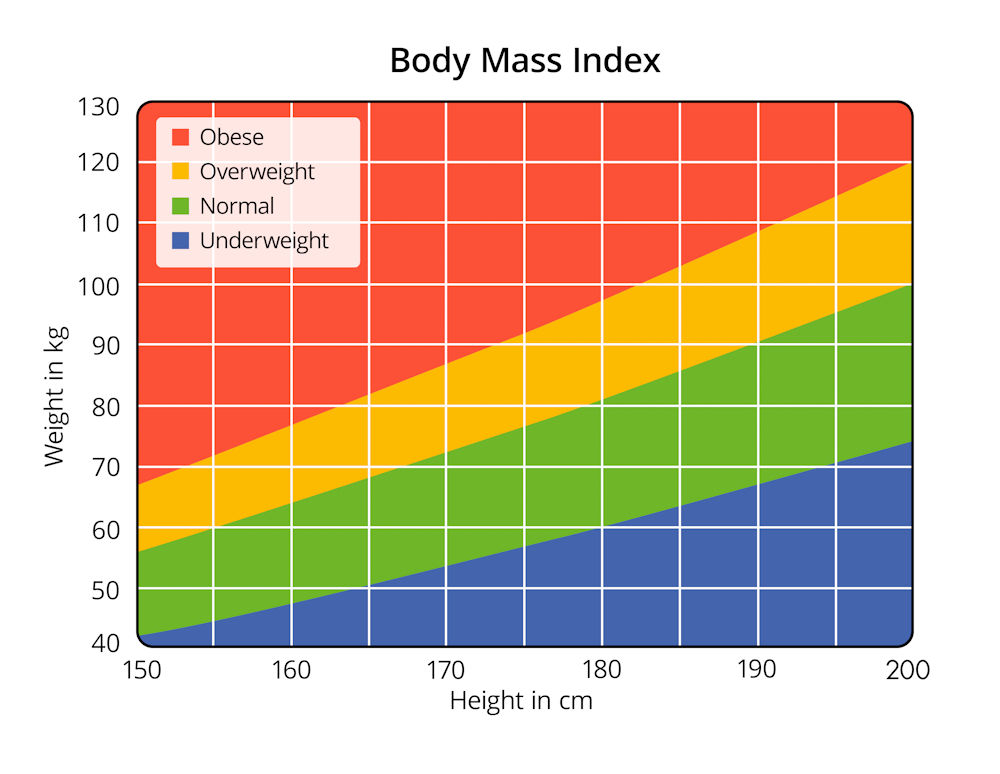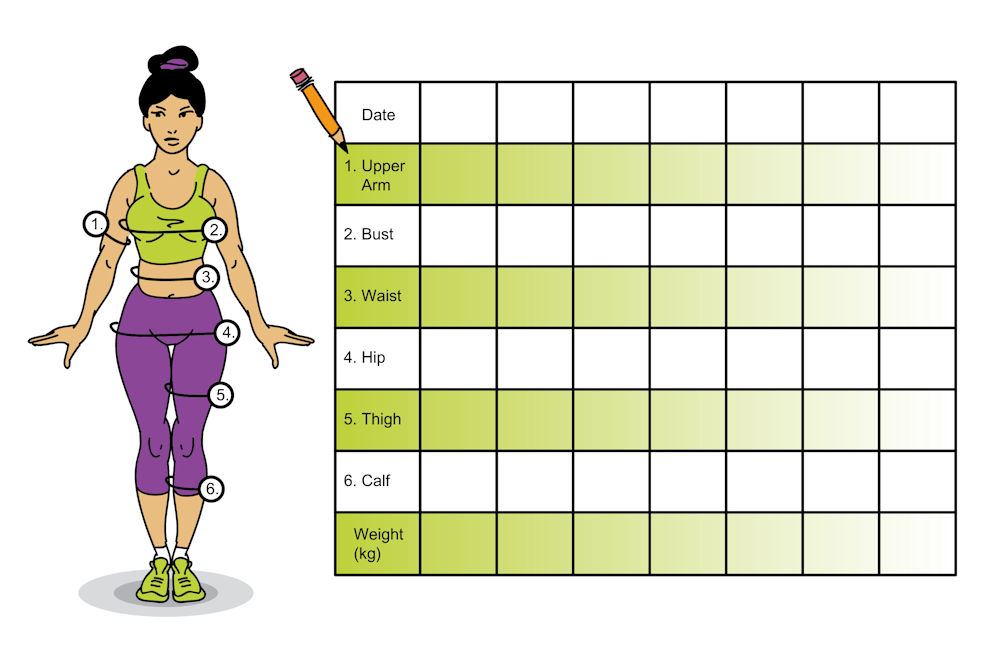And Should You Even Bother?
Hi Beth,
I’m really confused.
Should I weigh myself? I do, regularly, but I’ve been speaking to lots of people recently and they all suggest that I shouldn’t bother. To ditch the scales AND that I might not even lose weight.
I’m really disheartened because I’ve got quite a bit of weight to lose. I don’t want to be this size forever.
What should I do?
Thanks
Vanessa.
Hi Vanessa,
Thanks for your question.
It’s difficult when you’re getting advice from all angles. And everyone always has an opinion.
Please don’t be disheartened. Making healthy changes in your life, moving more, eating healthier, will lead to positive changes, in your body, your life and your health.
But, an important part of your journey is to find a way to measure how effective your changes are. It’s a way to keep you motivated, if you’re doing well, or it gives you the chance to alter your path, if you’re not doing so well.
Weight is a form of measurement, but it isn’t the only one. So, let’s see if it a suitable form of measurement.
How to Weigh Yourself: The Arguments
First off, I think it helps to understand the arguments behind the advice you’re getting.
I think the argument for weighing yourself is self-explanatory.
Your goal is to lose weight. You’ve set a target to lose each week and jumping on the scale is the easiest way to see if you’re on track.
Why then, wouldn’t you weigh yourself?
Well, as you exercise and eat a healthy diet full of lovely lean protein, you will start to burn fat and build muscle.
Yay. That’s what you want.
But, the thing is muscle weighs more than fat. So, if you’re building more muscle than you’re burning fat, you could put on weight. But you would be smaller, leaner and less wobbly.
In this case, weighing yourself isn’t going to be an accurate measurement of your progress.
How to Weigh Yourself: Body Mass Index

I can’t have a discussion about weighing yourself without talking about the body mass index.
Inevitably, if you haven’t already, you will come across it, and it may put into perspective what I’ve just been talking about.
So, body mass index is a way of categorizing someone in terms of how over, or underweight they are, taking into account their weight and height.
What it doesn’t take into account is body composition or natural build.
Bearing in mind what you’ve just learnt, muscle weighs more than fat, someone who has very little body fat but a lot of muscle, think athletes, could be classed as obese, even morbidly obese. Which is crazy huh?
How to Weigh Yourself: What is Your Goal?
Let’s get back to you…
Should you be weighing yourself.
That would really depend on what your goal is, and where you are on your journey.
Most people that want to ‘lose weight’ don’t just want the loss part, they also want to look ‘toned’.
I say most people here because there are instances when someone may just want to lose weight.
For example, if you need a medical procedure and you’re BMI is too high. In this instance, despite my hatred for this crude measurement, I would say just suck it up. Lose the weight, get the procedure done and then move on.
You might also be concentrating on just weight loss if you’re entering a competition and have to be within a certain weight category.
But, in my experience, those examples are not the majority of people wanting to lose weight.
So, what is your goal? Do you just want weight loss, or are you also looking for the toned, dare I say fitness model look?
If it is the fitness model look you’re after you’re going to have to come to terms with the fact that you’re going to have to build muscle. And that you might become a bit heavier than you initially want to be.
But if you’re just starting out on your journey, or you’ve still got quite a bit of weight to lose, this is unlikely to be where you’re at.
You will still be at the stage where your body is burning off that fat, and so you should be losing weight. And weighing yourself would be a good way to track progress.
How to Weigh Yourself: When, Where, How Often
If that’s the case, then you’ll probably want to the know all about how to weigh yourself.
Let’s start with how often.
You say that you’re weighing yourself regularly, and I would ask how regularly is regularly? Weighing yourself too often is not good. You become bound by those numbers and they start to have an impact not only on how you make plans for the coming week, but how good you feel about yourself.
Remember, those numbers are just that, numbers. They are a way of assessing your progress and not how good you should feel about yourself.
If your efforts haven’t been that successful, take it as an opportunity to learn, make changes and move on.
I usually advise a weekly weigh in. A week is a nice period of time. It gives your body enough time to adjust to changes but it’s not so long that if you need to make changes you feel disheartened.
Next up, when?
Whatever interval you choose, make sure it’s at the same time of day.
Personally, I prefer first thing in the morning after my morning wee. Your weight will fluctuate throughout the day, depending on what you’ve eaten, how you’ve moved. But first thing in the morning you’ll be fresh, have an empty stomach (if you didn’t eat too late the night before) and your weight should be more consistent.
How to Weigh Yourself: Other Options

There will however, come a time when the scales stop moving in the direction you want. Remember fat and muscle.
So, what do you do then?
That’s when you turn your focus to other forms of tracking. These can also form an integral part of your tracking even if you are still jumping on the scales.
The two main ones are taking body measurements and photographs.
Body measurements should be taken in the same place, usually chest, naval, lower abdomen, hips, bum, thighs and biceps. As for photographs, take them in your underwear, or bikini, front, sides and back.
Photographs are probably the best motivation and tracking tool because you can see exactly how you’re moving towards your goal.
Don’t do these weekly though. Measurements and photographs are much better done monthly.
How to Weigh Yourself: Should you bother?
To summarise, if you are just starting out on your journey, or still have quite a bit of weight to lose then jumping on those scales is going to be a quick and effective way of monitoring your progress.
Be careful not to get too caught up in those numbers though. Use them as a tracking tool only.
And don’t worry once they start to slow down or even stop going in the direction you’re hoping for. Look at your pictures, look at your measurements.
I hope that makes you feel better, and gives you some clarity for your way forward.
Good luck, and as ever, if you need any more help … you know where I am.

Important Info
© e-Slimmer 2021

New! Comments
Have your say about what you just read! Leave me a comment in the box below.